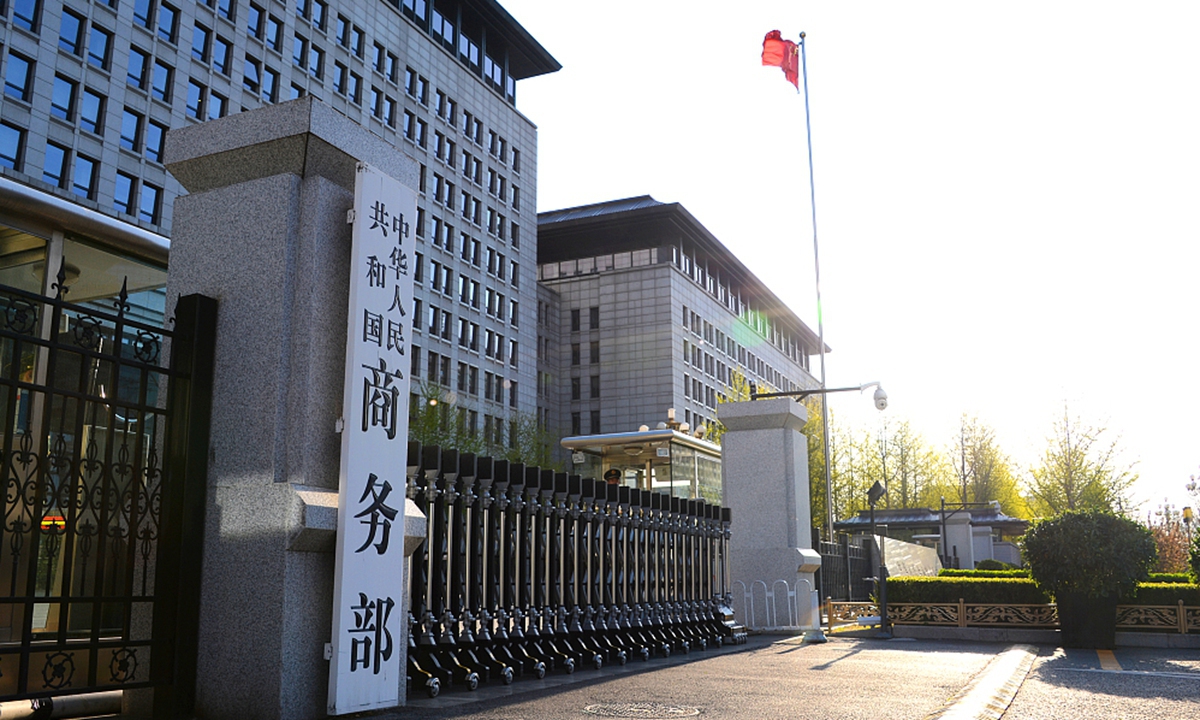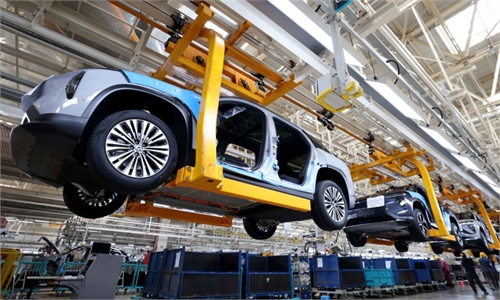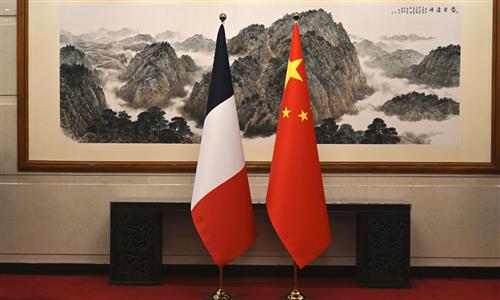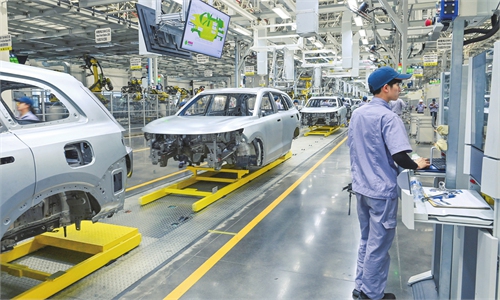MOFCOM refutes claims of prohibited subsidies under WTO; ‘overcapacity’ fallacy runs counter to common sense

The Ministry of Commerce Photo: VCG
China's Ministry of Commerce (MOFCOM) reiterated on Thursday that the so-called overcapacity fallacy runs counter to common sense and reasoning, noting that China does not have prohibited subsidies under the WTO and the country's new-energy industry strongly contributes to the global green transition.
He Yadong, a MOFCOM spokesperson, made the remarks during a press conference, saying that the world economy has long since become an indivisible whole, requiring supply and demand to be matched and adjusted in a global perspective. "A country should not be labeled as having 'overcapacity' just because it has more capacity than it needs," He said.
The US, Europe, Japan and some other developed countries have long exported a large number of commodities to the world. For instance, about 80 percent of the chips produced by the US are used for export orders. About 80 percent of automobiles produced in Germany and 50 percent in Japan are exported.
China's exports of electric vehicles only reached 1.2 million, accounting for 12.7 percent of its production, in 2023. "Are the exports of the US, Europe and Japan justified and China's exports of new-energy products are a surplus?" He asked.
According to the International Energy Agency, in order to achieve the goal of carbon neutrality, global sales of new-energy vehicles (NEVs) in 2030 will need to reach about 45 million, more than three times the level in 2023, far exceeding the current global supply capacity.
Overall, the global new-energy industry is still in the initial stage of development with rapid growth. Instead of having excess capacity, the relevant capacity is relatively deficient, the spokesperson noted.
"It is not 'overcapacity' but anxiety. Essentially, the relevant countries are worried about their own competitiveness and market shares, and they use this as an excuse to discredit and suppress China, which is another new case of 'double standards' and trade protectionism," He said.
This practice won't stop the pace of China's progress, but these countries will trip over themselves, and drag down the global economic recovery and green transformation.
Some countries, by using this fallacy, set restrictions on China's exports and investment cooperation, which actually constitutes artificial intervention and fragmentation in the global market. The move will destroy new-energy production and supply chains, resulting in duplicate construction and overcapacity, He warned.
It is estimated that each NEV will reduce carbon by about 1.66 tons per year, and China's exports of 1.2 million NEVs in 2023 will help reduce carbon by about 2 million tons per year. The development of China's new-energy sector supports the widespread application and industrialization of green, digital and artificial intelligence technologies, He said.
In addition, the popularity of China's new-energy products is the result of the enterprises' efforts, not the government's compensation. More than 20 years ago, Chinese enterprises were already continuously investing in R&D and industrial layouts in the field of new energy. Through fierce market competition, they have formed their own unique advantages, including in technological innovation, production and supply chains, and market environment advantages.
The policy of industrial subsidies originated in the US and Europe, and it was commonly adopted by countries around the world. China does not have prohibited subsidies as stipulated by the WTO, and the relevant subsidy policies have been fully notified to the WTO in a timely manner.
On the contrary, the US and Europe have significantly increased their subsidies in recent years, with a large number of exclusionary and discriminatory practices, setting up numerous obstacles to the entry of Chinese products into relevant markets, which is a typical protectionist practice and a violation of the basic principles of the WTO, He noted.
Relevant countries should immediately stop the wrongful practice of suppressing and restricting China's new-energy industry in the name of "overcapacity." China will take strong measures to defend its legitimate rights and interests, and it will always adhere to openness and cooperation and promote common development, He said.
Global Times



